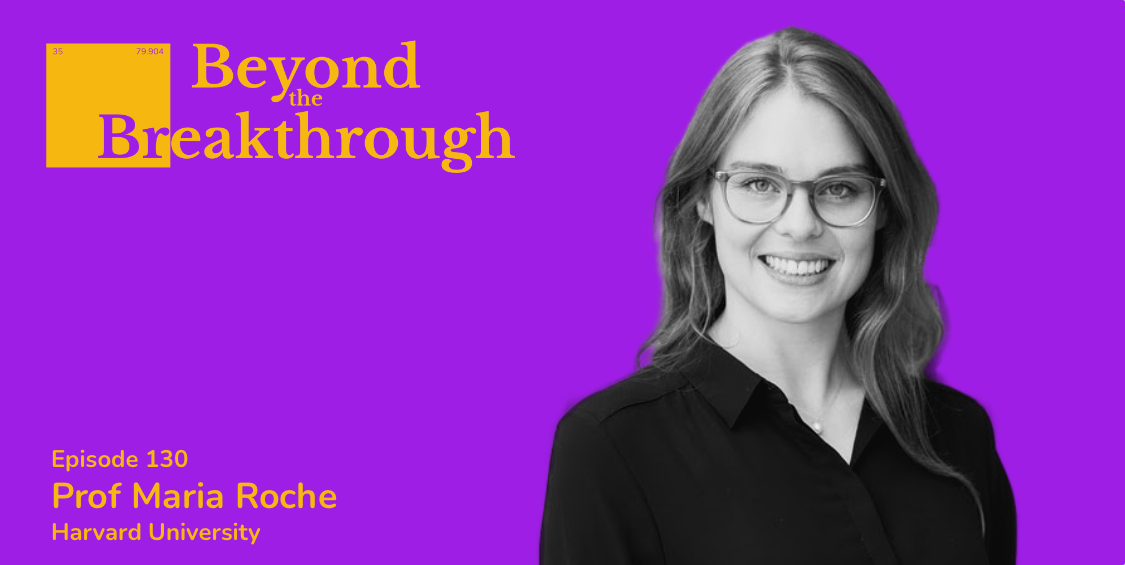While universities often push their academics to be more entrepreneurial, having a professor lead a spinout decreases its chances of raising money and being acquired, according to research by Harvard associate professor Maria Roche.

Is it a good idea for universities to push their faculty to be more entrepreneurial? Data suggests there is a real cost for professors, spinouts and students, according to Maria Roche, an associate professor at Harvard Business School.
Roche, together with her PhD candidate Justine Boudou, analysed 510 biomedical spinouts over 10 years and found that startups relying heavily on university research were much less likely to receive high levels of funding or be acquired.
Roche started the research expecting to find that spinouts heavily linked to academic research would be at an advantage. “These startups have knowledge that no one else in the world has. This should be valued very highly,” she explains on a recent episode of the Beyond the Breakthrough podcast.

Listen to podcast
Instead, she found the opposite. The more closely a spinout was related to a research lab, the less likely it was to receive equity financing and be acquired.
The founder also matters, says Roche. If the academic inventor of the technology is also the founder of the spinout, the odds of raising large amounts of capital go down, as do the chances of the spinout eventually going public.
It is more complicated if there is an academic founder and the spinout’s technology is also closely linked to the original research lab. The impact on raising funding is “very negative”, Roche says, and it doesn’t help the company being acquired. But for companies that go public, having both an academic founder and technology closely linked to their research lab has a positive impact.
“It’s really important to understand what your exit strategy is going in with your startup,” Roche says. “That may tell you what you need to build your startup around. Do you need to build it around specialised knowledge? Do you need to have the founder inventor or not?”
Roche stresses she is not against spinouts but she cautions that there is a real opportunity cost. Pushing an academic down the startup route might be detrimental to the startup and it also means the professor will have less time for other things, like basic research and teaching.
Academic founders’ PhD students also suffer
Universities also need to make sure it is the right decision for PhD students. In a separate study, Roche looked through 20 years of PhD students and their professors at a large, undisclosed university in the US. She ended up with data on more than 1,000 PhD advisers and was able to analyse the professors’ and students’ output in terms of publications, patents and spinouts.

Professors’ “usual day-to-day job is producing science and training the next generation of scientists,” Roche says, “but now they have this new task which may distract them from that old job”. With only so many hours in the day, concessions inevitably have to be made. Roche found that those concessions are impacting the PhD candidates dramatically.
“You may think that when your adviser becomes an entrepreneur, that may just shift the direction of your research, that you may be doing more commercial stuff, may have more patents,” she says. But that is not what’s happening. While it doesn’t impact the number of patents a student may be named on, having an academic founder as their PhD supervisor means these students don’t publish as many papers and what they are publishing isn’t cited as much.
When looking at the job outcomes of these PhD students, they are less likely to become professors themselves. Roche doesn’t qualify whether that is good or bad but points out that producing the next generation of faculty has always been an important aspect of teaching PhD students. Instead, the students are more likely to end up in consulting firms. These odds increase the longer a PhD student spends in the lab while the professor has a startup.
“I looked at the mentoring scores that these advisers get before and after becoming an entrepreneur,” Roche explains. “What I find is that these advisers get lower scores on their mentorship evaluations and it’s primarily driven by them not being available to their students.”
In interviews with PhD students, Roche found that they typically join labs because they want to learn from the academic — they were not thinking of the potential to join a spinout. Although highly accomplished academics are often the ones with at least one spinout, Roche found that PhD candidates “don’t necessarily know that they’re joining an entrepreneur’s lab”.
To mitigate some of the negative effects, Roche says universities should rethink tenure requirement packages, which increasingly include entrepreneurship. She argues that universities should have separate tenure tracks for faculty who are entrepreneurial and those who teach PhD students.
But, she acknowledges, it can be a difficult proposition because some of the most productive academics — such as Nobel laureate Jennifer Doudna, who discovered gene editing technology CRISPR — are also often founders of multiple startups and “the big fear is losing them”.
A solution could be to shift lab members to postdocs when a professor launches a spinout, away from recruiting additional PhD students. “We want to make sure that the professors still have enough human power to do the work in their labs,” Roche says.









